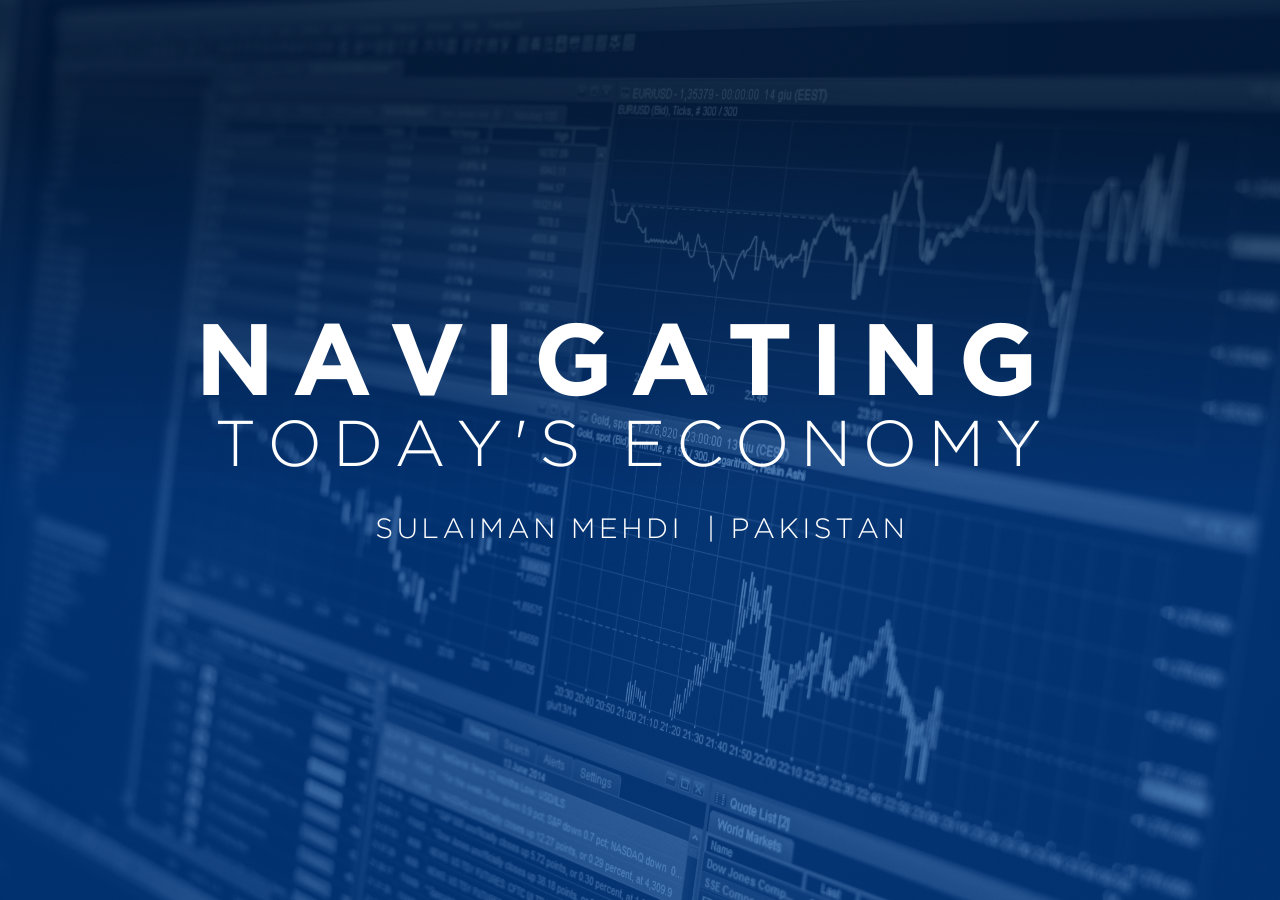The second episode of Navigating Today’s Economy features the highly accomplished finance professional, Sulaiman Mehdi, current CEO of Cyan Limited and former chair of the Pakistan Stock Exchange.
The interview begins with a recap of the major global events over the past few years. During the Covid-19 induced lockdowns of March 2020, countless businesses were forced to close and millions of people lost their jobs. According to the IMF, it was the worst economic downturn since the Great Depression.
“The reaction by central banks was massive cuts in interest rates, along with stimulus packages,” explained Sulaiman. The aim was to make borrowing cheaper and encourage spending to kick-start the economy. This was witnessed in almost all major economies of the world.
However, “Every force has an equal and opposite reaction,” added Sulaiman. Once vaccines had been deployed at a mass scale and societies around the world re-emerged from lockdowns, demand for products and services began to rise faster than suppliers could keep up with, leading to a rapid increase in prices across the board.
“My view is that the central banks globally lagged a little behind in increasing the interest rates with the pace of the demand.”
As a result, the banks are now playing catch up with runaway inflation, and are belatedly applying rapid and large interest rate rises in an effort to tame rising prices. Borrowing is suddenly expensive for businesses and consumers. This situation, in combination with other factors, may have the effect of tipping economies into recession.
In terms of global growth figures, “these are tough times,” Sulaiman says, “although actually now we are getting back to normal after the excessive rate cuts.” This reflects the cyclical nature of economic growth and slowdown.
The current uncertain environment has thrown up some undesirable scenarios that are impacting individuals’ everyday spending and saving decisions. We are hearing terms such as stagflation and shrinkflation. What do these mean?
“Stagflation is a combination of muted or very slow growth and very high inflation,” says Sulaiman. This is where prices of goods and services are rising, but purchasing power — chiefly from wages — falls. We are witnessing this in the form of a ‘cost-of-living crisis’ in the UK and other parts of the world.
Shrinkflation is separate but related. “This is where a company does not increase prices directly, but downsizes the package,” explains Sulaiman. “It’s a kind of inflation but in a different form.”
As individuals and families navigate the current climate, they may need to consider adjusting spending patterns in order to prepare for a sustained period of economic contraction.
“One piece of advice would be to defer your discretionary expenses at this time,” suggests Sulaiman, adding: “To me, prudence is working smart, working diligently.”
In the episode, he also has advice for owners of small and medium-sized enterprises and for those involved in the agricultural and industrial sectors.
---
To watch the show in full, and learn how to better navigate today’s economy, visit The Ismaili TV On Demand.








